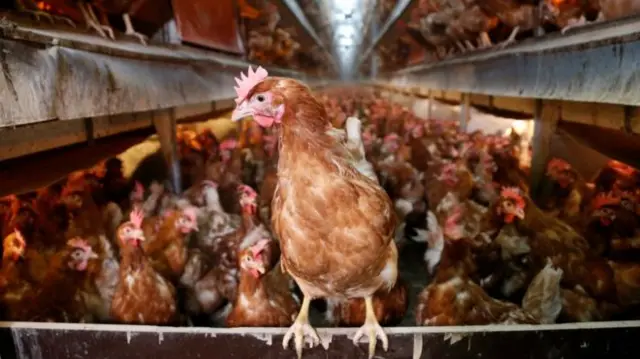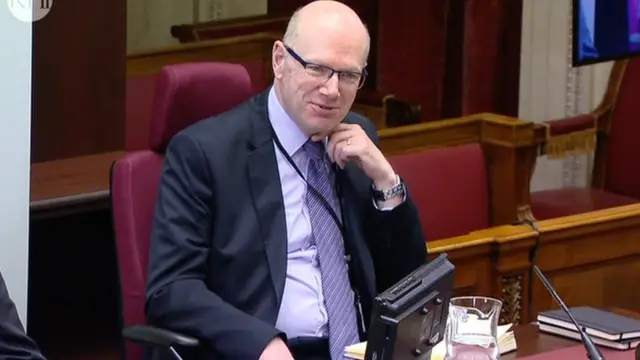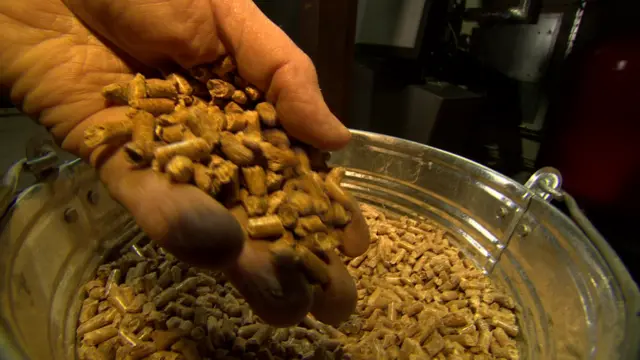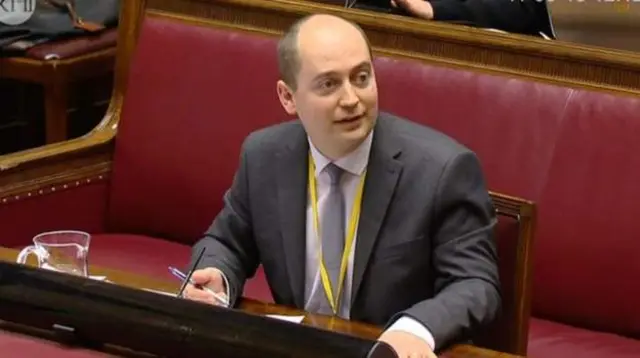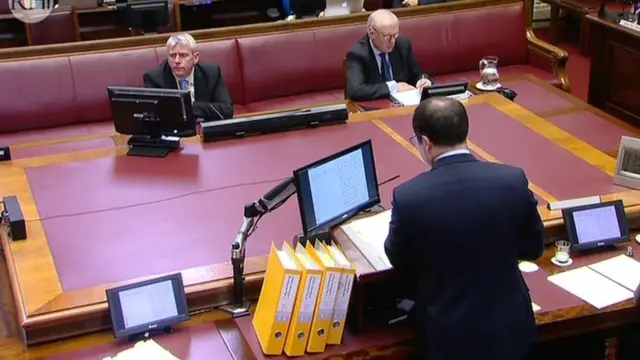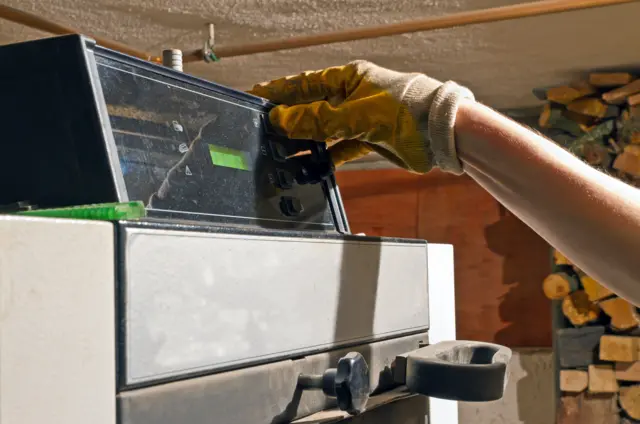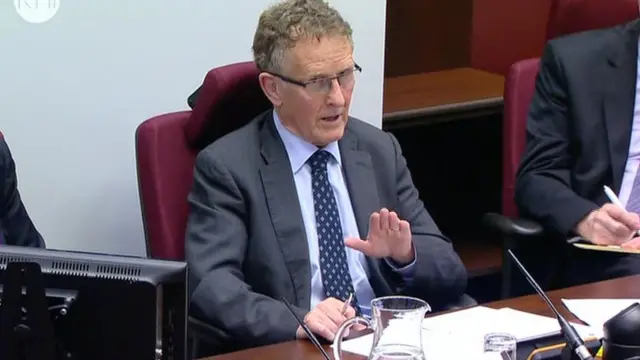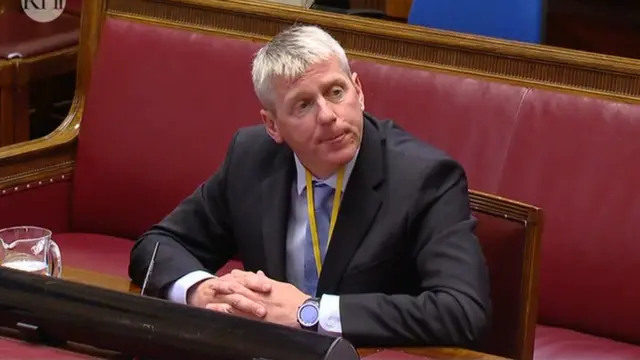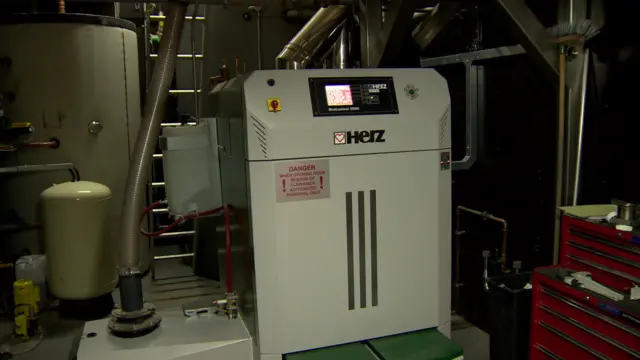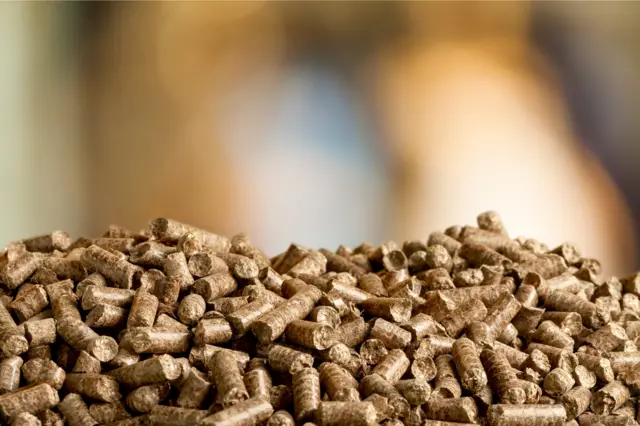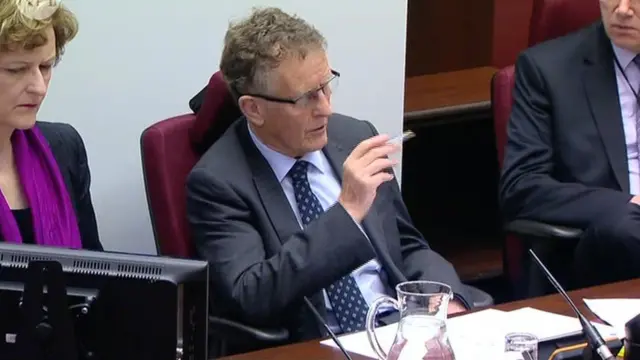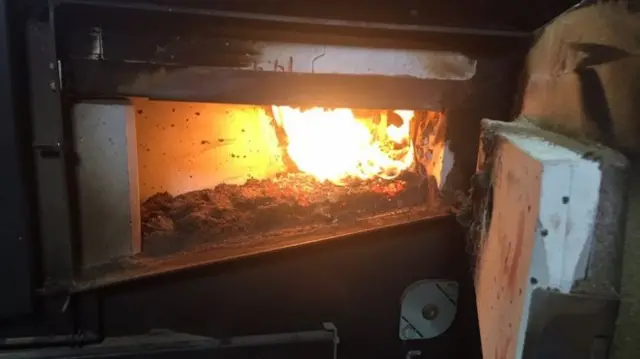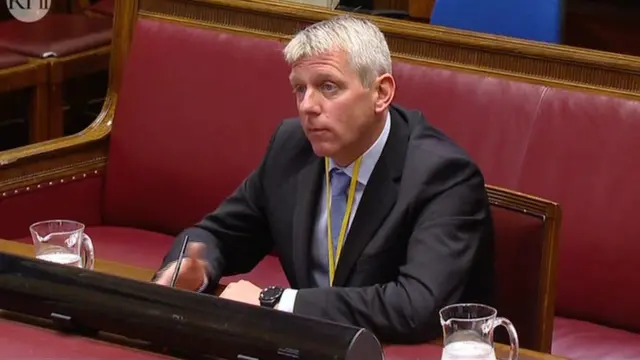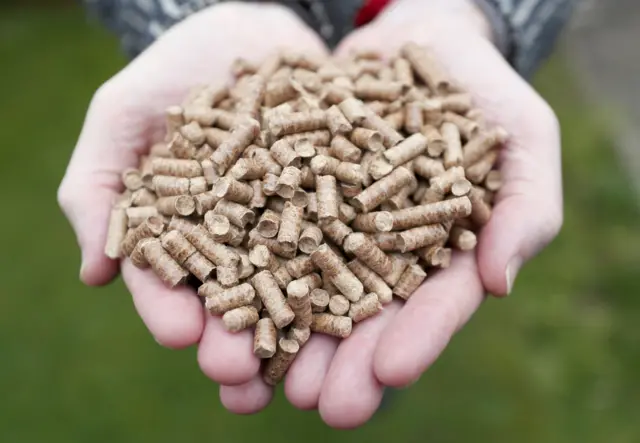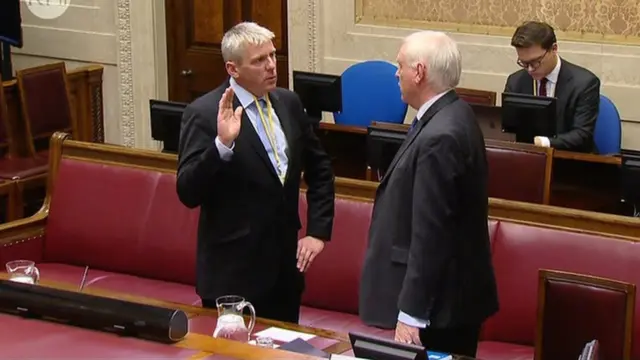'RHI equals hectic industry!'published at 13:15 BST 16 May 2018
Mr Lunny is brings the inquiry's attention to an email from John Martin of heating contractor company Green Energy Technology.
The email, sent in March 2014, talks about how the company is very busy installing 99 kilowatt container units.
It says: "We have five 99 kilowatt container units to be completed by April and another six later this summer all on pellets.
"It can be difficult to find a site where chips can be delivered and stored easily.
"RHI = Hectic Industry!!"
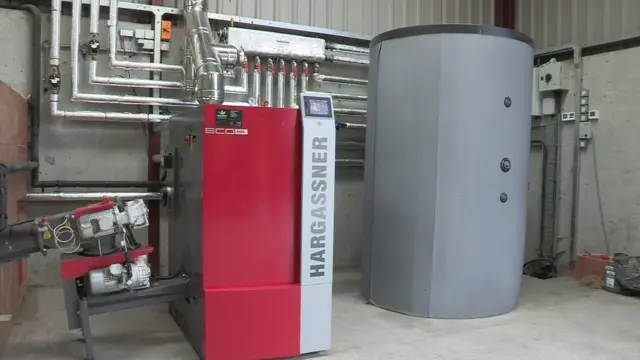
Mr Lunny suggests that if Mr Johnston's aim was to incentivise the growth of willow, but that he was hearing that it was lots of small boilers burning pellets, he should have brought this up with DETI.
"It would have been well known within the industry that it was all 99 kW boilers going in so they would have been very clear there was another way to do this," says Mr Johnston.
"But whether the industry, or whether the department felt that that was the right way to go, you know, this is me coming up with a very personal view of how ... biomass can be supplied and how Northern Ireland can meet renewable heat targets."
